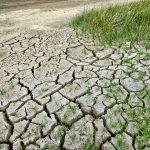What climate change means for public health
A call for climate justice
On the 20th and 27th September 2019, millions of people from around the world will walk out of their workplaces, classrooms and homes and take to the streets to demand action for climate justice. This movement, established by then 15-year-old Greta Thunberg, is being led by school-aged children from around the world. The question I present here is: why should we, as public health and healthcare advocates, care about a climate initiative?
Climate change and health
The health implications of climate change are already far reaching. The World Health Organization reports that every year, 7 million premature deaths occur due to air pollution, which in itself is a major cause of climate change [1]. By 2030, an additional 250,000 deaths per year are predicted if climate-sensitive diseases, such as malaria, continue to increase at their current rate [2]. It is widely understood that poor living conditions, often as a result of poverty or deprivation, greatly increase the risk of non-communicable diseases suffered by individuals within a community. Evidence also suggests that the impact of climate change will likely hit these at-risk communities the hardest – with warmer and more variable weather patterns causing water sources to dry up, as well as an increase in natural disasters, leading to compromised agricultural production and increased devastation of impoverished communities [3; p.2]. Climate change is no longer just a question of fossil fuels or coral reefs – it is now a question of protecting the livelihoods and health of the most vulnerable populations. If public health and healthcare organisations truly want to target the risk factors known to increase the frequency of non-communicable diseases, then they must be aware that climate change increases poor air and water quality, and limits access to healthy and nutritious foods, both of which may potentially lead to increased instances of cardiovascular, respiratory and renal diseases [4]. The field of public health, therefore, has a responsibility to address and take action on climate change to protect the general public.
What can be done?
This post is not a doomsday message, but rather, a call to action. The UN’s Intergovernmental Panel on Climate Change suggested succinctly that the public must shift their perspective of seeing climate change as ‘the biggest global health threat of the 21st century’ [5; p.1693] to being ‘the greatest global health opportunity of the 21st century’ [6; p.1681]. If public health advocates choose to tackle issues of environmental sustainability and climate change, then it is hoped that there may be a measurable decrease in the rates of climate-change related diseases. The National Health Service, currently accounting for 25% of the UK’s public sector’s greenhouse gas emissions [7], has a critical role to play as a mover and shaper for climate change action. Recommendations suggested by the World Health Organization in Healthy hospitals, healthy people, healthy planet, aim to help healthcare organisations increase their efficiency while decreasing their carbon footprint [8]. Not only will this improve the environment and help to decrease climate-change related illnesses, but these steps may also have positive economic implications for the healthcare organisations involved, such as the NHS. The Climate Change Health Alliance has found that if the European Union reaches its goal of reducing emissions by 20% before 2020, approximately £52 billion will be saved in health costs [9]. I invite everyone to take a moment to reflect on the profound opportunity that climate change mitigation has presented to public health. Take action.
To see how your personal lifestyle impacts the earth, feel free to visit this foot-print calculator.
References
[1] World Health Organization. 2016. Ambient air pollution: A global assessment of exposure and burden of disease. Geneva: World Health Organization. Available athttps://apps.who.int/iris/bitstream/handle/10665/250141/9789241511353-eng.pdf?sequence=1.
[online]
[2] World Health Organization. 2019. Climate change and health. Available at: https://www.who.int/news-room/fact-sheets/detail/climate-change-and-health.
[3] World Health Organization. 2009. Protecting health from climate change: connecting science, policy and people. Geneva: World Health Organization. Available at: https://www.who.int/world-health-day/toolkit/report_web.pdf.
[4] United Nations. 2017. Climate Change Impacts on Human Health [online]. Available at: https://unfccc.int/news/climate-change-impacts-human-health.
[5] Costello A, Abbas M, Allen A, et al. 2009. Managing the health effects of climate change: Lancet and University College London Institute for Global Health Commission. Lancet, 373, p.1693–733. DOI: https://doi.org/10.1016/S0140-6736(09)60935-1. Available at: https://www.thelancet.com/journals/lancet/article/PIIS0140-6736(09)60935-1/fulltext.
[6] Watts N, Adger WN, Agnolucci P, et al. 2015. Health and climate change: policy responses to protect public health. Lancet, 386, p. 1861–914. DOI: https://doi.org/10.1016/S0140-6736(15)60854-6. Available at: https://www.thelancet.com/journals/lancet/article/PIIS0140-6736(15)60854-6/fulltext.
[7] National Health Service. 2009. Saving carbon, improving health: NHS carbon reduction strategy for England. Cambridge: NHS Sustainable Development Unit. Available at: https://www.sduhealth.org.uk/policy-strategy/engagement-resources/nhs-carbon-reduction-strategy-2009.aspx.
[8] World Health Organization. 2008. Healthy hospitals, healthy planet, healthy people: addressing climate change in healthcare settings. Geneva: World Health Organization. Available at: https://www.who.int/globalchange/publications/healthcare_settings/en/.
[9] The Global Climate and Health Alliance. 2018. Health as a driver for action on climate change [online]. Available at: http://climateandhealthalliance.org/climate-health/health-as-a-driver-for-action-on-climate-change/.

